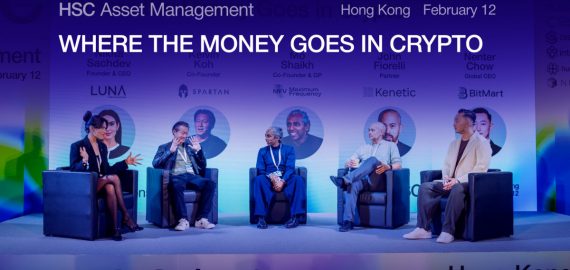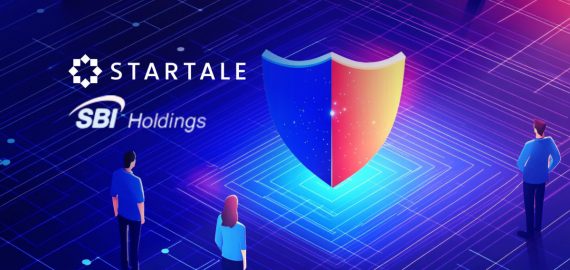Decline in VC Investment Spurs Rise of Community Governance Fundraising in Web3


In Brief
Web3 startup fundings decreased by 76% in 2023.
Projects in the Internet Computer ecosystem have turned to fundraising through the ICP’s Service Nervous System (SNS) community governance model.
These projects have secured a total of $15 million in funding.

As crypto winter persists, Web3 startups find themselves in the grip of a funding downturn. To put this into perspective, between 2021 and 2022, funding for Web3 startups dwindled by 26%, culminating in a 74% drop by the close of the year.
Fast-forward to Q2 this year, and the decline in VC funding for Web3 startups has become even more pronounced, plummeting by 76% when compared to the same period in the previous year, as detailed in a Crunchbase report.
As investors increasingly turn their focus towards AI-driven companies amidst the AI frenzy, Web3 startups have unfortunately borne the brunt.
Crunchbase data reveals that Web3 startups managed to secure slightly over $1.8 billion in funding across 322 deals in Q2 this year. These figures represent a decline of more than three-quarters in funding compared to the same period in 2022, during which startups in the sector successfully raised an impressive $7.5 billion. This trend is further emphasized by a significant 51% decrease in deal flow.
When examining the broader picture, the decline becomes even more evident. In the first half of 2022, Web3 startups collectively amassed nearly $16 billion in funding. In contrast, this figure plummeted to a mere $3.6 billion during the first half of this year—a massive 78% drop.
In the face of declining VC funding, a new fundraising model has emerged: Community governance.
For instance, projects within the Internet Computer blockchain ecosystem such as OpenChat, Kinic, and Hot or Not have collectively raised $15 million through the blockchain’s Service Nervous System (SNS) community governance model.
“Think of them as an advanced form of a DAO that can run any web3 application in a decentralized way, fully on chain. The community themselves invest via governance tokens, granting them ownership and control of the dApp’s future,” Lomesh Dutta, VP of Growth, DFINITY told Metaverse Post.
What is the SNS framework?
The Service Nervous System (SNS) community governance model capitalizes on decentralization principles and empowers communities to participate in project governance actively. It’s a stark departure from the traditional VC model, focusing on user-centric decision-making.
“Traditional DAOs only control smart contract logic, but the SNS framework allows for project management in its entirety. All governance token holders can propose and vote on all changes made to a dApp, even core code updates,” Dutta told Metaverse Post.
Unlike traditional DAOs, SNS operates fully on-chain and covers all aspects of project management, including code updates. When the community accepts a proposal, it is executed autonomously without centralized interference.
Dutta said that this feature attracted services like OpenChat, Kinic, Hot or Not and others to the Internet Computer ecosystem.
The Choice Between VC and SNS
Venture capital has long been the go-to funding source for startups. The appeal lies in its ability to provide substantial capital injections, coupled with industry connections and expertise.
In addition to financial support, VCs bring a wealth of knowledge and can help startups navigate the complexities of scaling their businesses rapidly. This support, however, often comes at the cost of relinquishing significant equity stakes and ceding some control.
“For one, this is the way it has always been. Not all startups have wrapped their head around community funding, and even then, this may conjure memories of Kickstarter campaigns that never delivered,” said DFINITY’s Dutta .
He also believes that VC funding remains a domain where Web3 fundraising can struggle to match. This is primarily because the “will of the community,” while fair, might not necessarily possess the expertise or connections that can be leveraged.
“SNS DAOs offer the ability to customize and nest governance models, allowing for more complex and explicit roles that community members can play, meaning talent and insight can flow where needed,” he added.
Transparency and Decision-Making in Community Governance
“SNSs are algorithmic DAOs that allow developers to hand control of their dApps development over to decentralized, token-based governance systems run by communities,” as per Dutta. This fosters alignment with the project’s vision, as users become stakeholders who share a vested interest in its success.
Contrary to common belief, community governance models can raise significant capital through token sales or decentralized autonomous organizations (DAOs), Dutta says. This approach provides founders with an alternative avenue to secure resources while maintaining more control over their project’s direction.
Dutta further elaborates, “Traditional DAOs only control smart contract logic, but the SNS framework allows for project management in its entirety.” Unlike VCs, which may seek control over the project, these models allow for transparent communication and consensus-building within the community.
Token-based governance systems, a hallmark of community governance, encourage community engagement.
“The community themselves invest via governance tokens, granting them ownership and control of the dApp’s future,” Dutta added. Token holders have a direct say in project decisions, creating a sense of ownership and responsibility that fosters long-term retention.
Tangible Gains of the SNS Model
The success stories of Web3 projects adopting the SNS model are compelling.
OpenChat, a decentralized community-governed chat app built on the Internet Computer, raised $5.5 million (1 million ICP) in just six hours during its decentralized fundraising round. This approach not only secures funds for future development but also ensures democratic and censorship-resistant governance.
“The raise was completed via a decentralized swap of CHAT governance tokens, all held on the ICP network. It drew in a total of 2,375 participants who committed a combined 1 million ICP tokens,” DFINITY’s Dutta elaborated, regarding OpenChat’s fundraising process. “OpenChat’s system is now controlled by these holders of CHAT. The newly raised funds will be held in OpenChat’s treasury, allowing CHAT holders to decide how to utilize them best.”
Similarly, Kinic, a web3-native search engine, secured over $2 million (500,000 ICP) to challenge centralized tech giants and offer a decentralized alternative that prioritizes user data privacy and open-source transparency.
Hot or Not, an Internet Computer ecosystem project, raised $4.5 million (1 million ICP) through its SNS rollout. This unique platform combines short videos with prediction markets, empowering its community to participate directly in decision-making and monetization strategies.
Getting Web3 Developers to Reduce Reliance on Venture Funding
As Web3 founders find their way through the changing funding landscape, the decision between community governance and VC funding takes on heightened significance. While VC funding provides access to capital and industry insights — community governance models prioritize alignment, decentralization and active community involvement.
“In the SNS model, developers don’t need to wait for the deep pockets of whale investors to get off the ground. Instead, they can make their case for their product to the community and let them decide if they want to help support this project,”
Dutta asserts, advocating for the community governance model.
“Projects with solid teams and use cases can then see ample funding not just from one or a few centralized sources but from the very group of users they are building for,” he said. “This increases loyalty, gives actual power to that community via governance, and removes the need to please a small group of investors who may not have the same vision for a given project.”
Disclaimer
In line with the Trust Project guidelines, please note that the information provided on this page is not intended to be and should not be interpreted as legal, tax, investment, financial, or any other form of advice. It is important to only invest what you can afford to lose and to seek independent financial advice if you have any doubts. For further information, we suggest referring to the terms and conditions as well as the help and support pages provided by the issuer or advertiser. MetaversePost is committed to accurate, unbiased reporting, but market conditions are subject to change without notice.
About The Author
Cindy is a journalist at Metaverse Post, covering topics related to web3, NFT, metaverse and AI, with a focus on interviews with Web3 industry players. She has spoken to over 30 C-level execs and counting, bringing their valuable insights to readers. Originally from Singapore, Cindy is now based in Tbilisi, Georgia. She holds a Bachelor's degree in Communications & Media Studies from the University of South Australia and has a decade of experience in journalism and writing. Get in touch with her via [email protected] with press pitches, announcements and interview opportunities.
More articles

Cindy is a journalist at Metaverse Post, covering topics related to web3, NFT, metaverse and AI, with a focus on interviews with Web3 industry players. She has spoken to over 30 C-level execs and counting, bringing their valuable insights to readers. Originally from Singapore, Cindy is now based in Tbilisi, Georgia. She holds a Bachelor's degree in Communications & Media Studies from the University of South Australia and has a decade of experience in journalism and writing. Get in touch with her via [email protected] with press pitches, announcements and interview opportunities.


















































